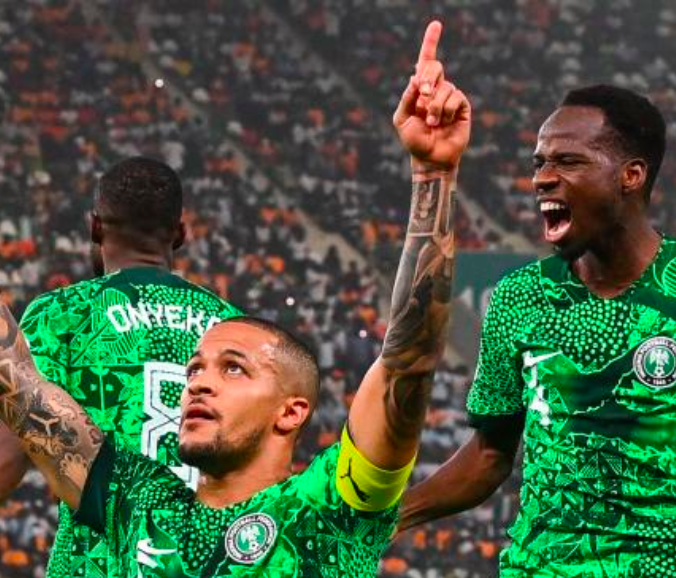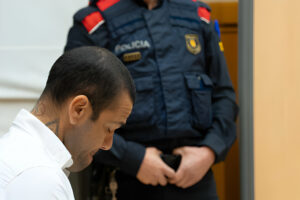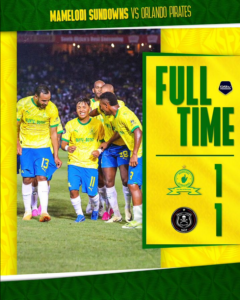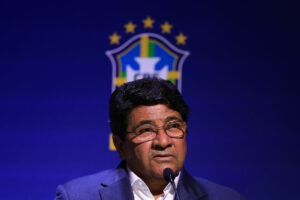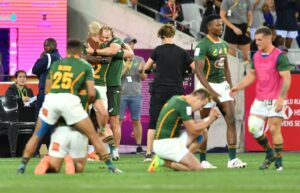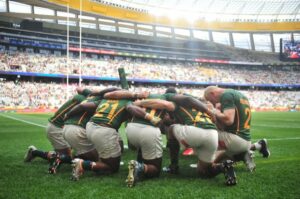Nigerians across the country erupted into celebrations on Wednesday night as their national football team clinched a hard-fought victory over South Africa in the semi-finals of the Africa Cup of Nations. Despite the tense match that ended in a penalty shootout, Nigeria emerged victorious, securing a spot in the finals against hosts Ivory Coast.
The clash, held in Bouake, Ivory Coast, witnessed substitute Kelechi Iheanacho sealing Nigeria’s 4-2 triumph in the penalty shootout after the game ended 1-1 following extra time. Captain William Troost-Ekong netted the first goal for Nigeria from a penalty in the 67th minute, only to be equaled by Teboho Mokoena for South Africa from another spot-kick. The drama intensified with a disallowed Nigerian goal, adding to the nail-biting tension of the match.
In Lagos, Nigeria’s bustling economic capital, scenes of jubilation unfolded in places like the Tiger Bar in the Ikoyi district, where the sound of Afrobeat tunes mingled with cheers as supporters danced and celebrated their team’s advancement to the continental finals.
“For a first time for a long time, we are excited, we are happy Nigeria beat South Africa,” exclaimed supporter Peace Nwanro, capturing the mood of many Nigerians. “Nigeria will keep winning.”
However, the victory resonates beyond football for some Nigerians, amidst economic challenges and recent disappointments in the music industry. Nigeria, grappling with high living costs amid government-led economic reforms, found solace in the success of its national football team, especially after Nigerian artists like Burna Boy and Davido fell short at the Grammy Awards.
Despite Nigerian dominance in nominations for the newly introduced Best African Music Award category at the Grammys, South Africa’s Tyla claimed the prize, intensifying the friendly rivalry between the two African giants.
In Johannesburg, South Africa, supporters of the national team, known as “Bafana Bafana,” expressed mixed emotions. While some, like Kenneth Mgipa, remained proud and hopeful for the future, others, like Whitney Langa, reflected on what they perceive as a departure from their footballing roots.
“We had the opportunity, we were just not strong enough,” lamented Langa, highlighting a sentiment shared by some South Africans. “But what we know is street football, we go fast and we get to the goal. We forgot who we are, that’s why we’ve lost.”
Nevertheless, amidst the disappointment, others like businessman Sello Phatoe adopted a more optimistic outlook, pointing to recent successes in rugby and music on the global stage as evidence of South Africa’s enduring influence.
“We’ve just been very unfortunate. Penalties are any man’s game,” noted Phatoe. “But there’s already a lot happening in our country: we won the Rugby World Cup, Tyla just won a Grammy, and Trevor hosted.”
The clash on the football field may have ended in victory for Nigeria, but the broader narrative reflects the enduring spirit of competition, camaraderie, and national pride that characterizes African football. As Nigeria prepares to face Ivory Coast in the finals, both teams carry the hopes and dreams of their nations, poised to deliver another thrilling chapter in African football history.

